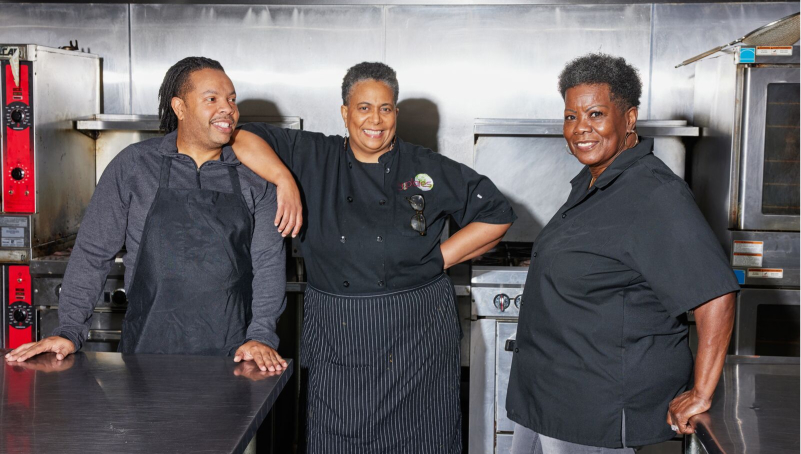Who needs an Oregon food manager license?
Restaurants and food service businesses do not need to have a certified food protection manager. Oregon does not require formal training for supervisory staff.
However, food establishments must have a designated person in charge (PIC) present during business hours.
The PIC, who is accountable during inspections, must understand foodborne disease prevention, the application of the hazard analysis and critical control point principles and the requirements of the Oregon Food Code.
The PIC can demonstrate their food safety knowledge in one of three ways:
- Ensure the establishment consistently complies with the Food Code and has no violations during health inspections.
- Correctly answer the inspector’s questions about food operations during an inspection.
- Be a certified food manager, having completed a training program and exam approved by the Oregon Health Authority or Oregon Department of Agriculture.
So, while there is no mandate for food manager certification, Oregon business owners or employees acting as persons in charge can satisfy the role’s requirements by earning an approved food safety certificate.
How to get Oregon food manager certification
To become certified food protection managers, Oregon employees or business owners must complete a training program and pass an exam from an approved provider. This ensures that their certification will satisfy the “demonstration of knowledge” requirement during health inspections.
Certificates from programs accredited by the American National Standards Institute – Conference for Food Protection (ANSI-CFP) and the Certifying Board for Dietary Managers are accepted in Oregon. The state also accepts certifications from select Oregon county food manager programs.
You or your employees can complete an Oregon food safety certificate online through an accredited program. In-person courses are also available.
Program fees vary by provider. Typically, the training program and exam costs around $100.
It’s important to note that restaurant owners are not required to pay for this certification. A certification is considered the employee’s property. Once acquired, these certifications are valid statewide, allowing employees to carry them to different employers within Oregon.
Insurance for Oregon restaurants, caterers, cafes and food service businesses
For restaurant or food service business owners in Oregon, choosing the right Oregon business insurance is critical to protecting against various risks. Here are some insurance coverage options to consider:
General liability insurance
General liability insurance in Oregon can safeguard your business if it is held responsible for property damage or an injury to someone other than you or an employee.
You’ll also want to look at food service general liability insurance for increased protection. It helps cover restaurant-specific risks, like foodborne illness, if a customer gets sick from the food served.
Workers’ compensation insurance
In Oregon, most employers are required to have workers’ compensation insurance. This helps protect your business if an employee gets hurt on the job.
Commercial property insurance
Commercial property insurance can help cover costs to repair or replace business property damaged by events like fires or burst pipes. It can include items such as inventory, equipment, furniture, and buildings.
Commercial auto insurance
Commercial auto insurance is essential if you or your employees use vehicles for work. This insurance covers medical expenses and property damage from accidents. Keep in mind that all cars in Oregon must have a minimum auto insurance coverage of $25,000 per person, $50,000 per accident bodily injury liability, and $20,000 for property damage.
How long does it take to get a food manager license in Oregon?
The duration to complete a food manager training program and exam in Oregon can vary, depending on the provider. Typically, you or your employees can finish the course and the exam in about eight hours.
Once the exam is completed, certificates might be available immediately, or they could be sent to you through the mail.
It’s a good idea for business owners to keep a copy of food protection manager certificates handy. Health inspectors might ask for proof of certification, especially if a person in charge is acting as a food protection manager.
Food protection manager certificates expire after five years. Oregon employees must retake an approved training course and exam to renew their certification.
Oregon food manager certification reciprocity
Oregon accepts valid food manager certifications earned while working out of state as long as they come from an ANSI-CFP-accredited provider.
Food manager certification vs. food handlers card
Food manager certification is optional for Oregon restaurants and food service businesses. However, food handler certification is a requirement set by the Oregon Health Authority.
All food service workers in Oregon must get a food handler card within their first 30 days of employment. They must complete a food protection course from an approved training program to get this certification. This certification must be renewed every three years.
While optional, having a valid food manager certification means you are exempt from needing the food handler certification.
Making sure your staff has the proper food safety training is crucial. It protects your business and significantly lowers the risk of foodborne illnesses through proper food preparation and handling practices.
How NEXT helps support Oregon restaurant owners
NEXT offers specialized Oregon restaurant insurance policies for restaurant owners, specifically for small businesses and self-employed individuals.
Getting a quote and reviewing your coverage options is fast and easy. You can select your policies and download a certificate of insurance in less than 10 minutes.
If you have any questions, our team of licensed insurance advisors is ready to help you every step of the way.
Start a free quote with NEXT.





